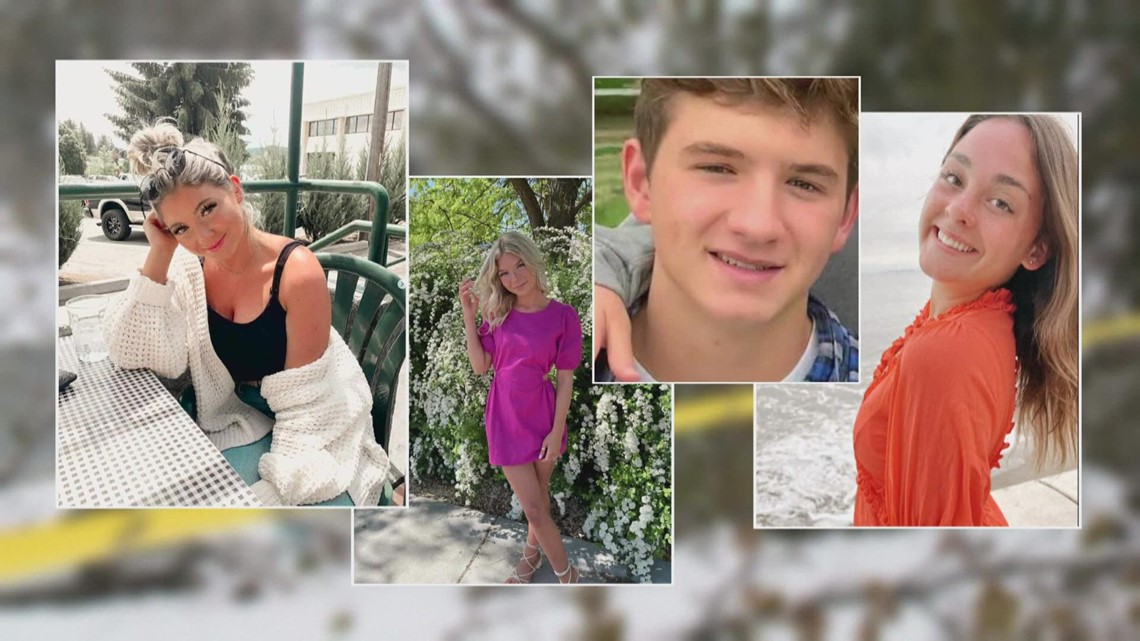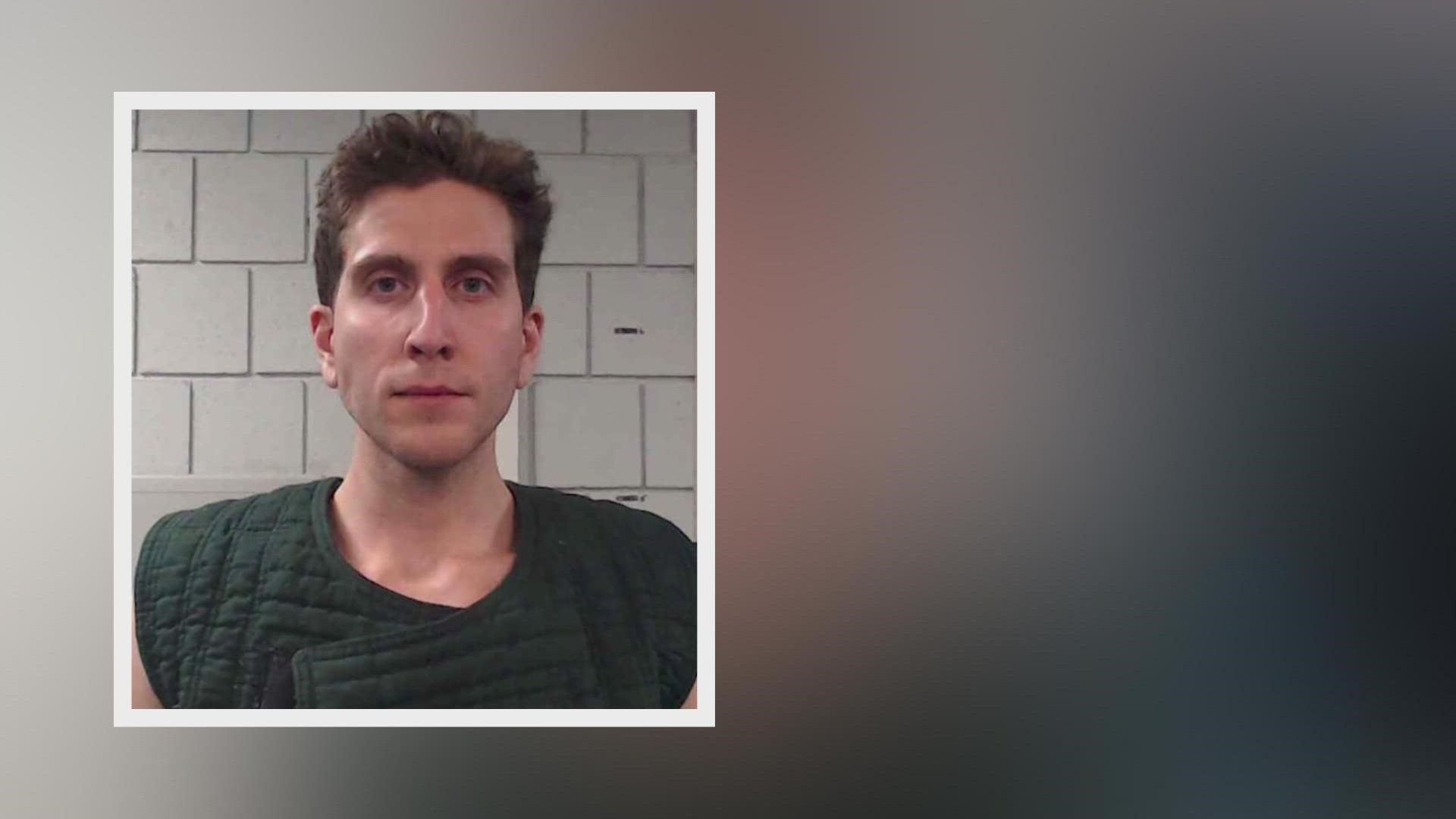MOSCOW, Idaho — The University of Idaho murder suspect is expected to waive his extradition hearing on Tuesday. So, what does that mean for the next steps in his legal process?
Bryan Christopher Kohberger, 28, was arrested Dec. 30 by the Pennsylvania State Police at a home in Chestnuthill Township, authorities said. Latah County Prosecutor Bill Thompson said investigators believe Kohberger broke into the students' home “with the intent to commit murder.”
Kohberger is accused of killing four University of Idaho students on Nov. 13. The victims were Ethan Chapin, 20, of Conway, Washington; Madison Mogen, 21, of Coeur d’Alene, Idaho; Xana Kernodle, 20, of Avondale, Arizona; and Kaylee Goncalves, 21, of Rathdrum, Idaho.


Shaakirrah Sanders is a law professor at the University of Idaho College of Law. This past year, she was a visiting professor of law at Penn State Dickinson Law.
Sanders explained what the public can expect next with the legal process.
Extradition process
According to Sanders, the extradition process exists because of Article 4, Section 1 of the U.S. Constitution, which says that every state must give full faith and credit to the public acts, records and more importantly, judicial proceedings of every other state.
"Because our defendant or potential defendant appears to have waived or intends to waive whatever extradition rights they have, it does not appear that there'll be any question about the legality of transporting this individual from Pennsylvania to Idaho for purposes of trial," Sanders said.
Kohberger remains in Pennsylvania and is set to appear in court on Tuesday. At that time, his public defender says he plans to waive an extradition hearing so he can be quickly brought back to Idaho — possibly as soon as Tuesday night or Wednesday morning — to face the murder charges.
According to Sanders, once Kohberger arrives in Latah County, he will be formally arrested by Idaho authorities.
Kohberger will then have a first appearance hearing, where bail is usually set.
This is followed by a preliminary hearing, where prosecutors present evidence and witnesses in open court and the judge rules on whether to bind Kohberger over for trial, meaning the case is sent to district court. Sometimes defendants can waive the preliminary hearing.
Alternatively, Kohberger could go through the grand jury process, which is a mechanism to bring a serious criminal matter to district court and would replace the preliminary hearing. This process could lead to an indictment.
After bail and preliminary hearings, Kohberger would then have an arraignment hearing. That is when he will enter a plea of guilty or not guilty. After that, if the prosecutors and defendants wish, they can engage in plea negotiations.
Otherwise, both sides will prepare to go to trial.
Currently, it is unclear when the trial will begin.
Evidence
Law enforcement sources told NBC News that a big crack in the case came from DNA that was identified using genealogy databases.
Sanders said the use of third-party DNA is an issue that hasn't been resolved by the U.S. Supreme Court, which could make this case even more interesting.
"I'd be very curious about what type of information law enforcement already has," Sanders said. "And is there independent probable cause, without the need to pursue third-party DNA evidence? If that third party DNA evidence is necessary, this could lead to quite an interesting question for both the courts in Idaho, but perhaps ultimately, the U.S. Supreme Court."
Police also seized a white Hyundai Elantra at Kohberger's parent's home in Pennsylvania, similar to the one that was seen near the crime scene around the time of the attack.
When will more information be released about the case?
Sanders said the First Amendment right of freedom of the press does apply to this case, "to the extent that individuals who are part of the media or individuals who have an interest in the case should be able to access information."
Sanders said more information could potentially be released the moment Kohberger is in Idaho. However, that would be any information that would go into the public record, so law enforcement does not have an obligation to release every detail of the case.
"I can understand why law enforcement may want to play their cards closely here," Sanders said. "But eventually, the cards will have to be played. And so I guess we'll just all have to wait and see."
Will the trial be held in Latah County?
Sanders said it is still unclear if the case will be held where the murders took place, in Latah County, or if it will be moved in hopes of finding an unbiased jury.
Sanders referenced the case of Lori Vallow, which was moved from Fremont County to Ada County, due to her being well-known in the community in addition to the amount of media attention the case got.
"The heinousness of the case may be what dictates a change in venue," Sanders said.

